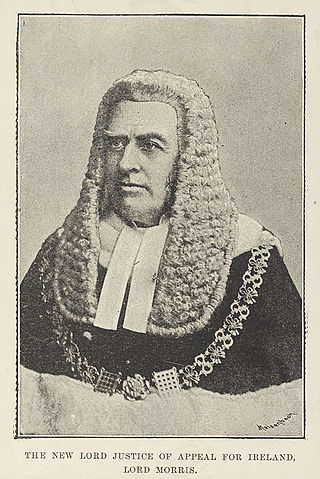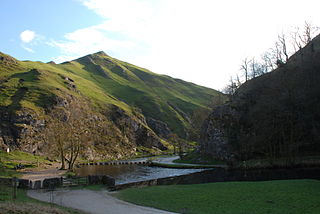
The Solicitor-General for Ireland was the holder of an Irish and then United Kingdom government office. The holder was a deputy to the Attorney-General for Ireland, and advised the Crown on Irish legal matters. On rare occasions, there was also a Deputy Attorney-General, who was distinct from the Solicitor-General. At least two holders of the office, Patrick Barnewall (1534–1550) and Sir Roger Wilbraham (1586-1603), played a leading role in Government, although in Barnewall's case, this may be partly because he, was also King's Serjeant. As with the Solicitor General for England and Wales, the Solicitor-General for Ireland was usually a barrister rather than a solicitor.

The Attorney-General for Ireland was an Irish and then United Kingdom government office-holder. He was senior in rank to the Solicitor-General for Ireland: both advised the Crown on Irish legal matters. With the establishment of the Irish Free State in 1922, the duties of the Attorney-General and Solicitor-General for Ireland were taken over by the Attorney General of Ireland. The office of Solicitor-General for Ireland was abolished at the same time for reasons of economy. This led to repeated complaints from the first Attorney General of Ireland, Hugh Kennedy, about the "immense volume of work" which he was now forced to deal with single-handedly.
This is a list of lawyers who held the rank of serjeant-at-law at the Bar of Ireland.
Patrick Finglas was a leading Irish judge and statesman of the sixteenth century, who was regarded as a mainstay of the English Crown in Ireland. He was also the author of an influential "Breviat", or tract, called Of the Getting of Ireland, and of the Decay of the same, concerning the decline of English power in Ireland.

John Bathe was an Irish barrister and judge. He was a member of a famous legal dynasty, and had a distinguished career under the Tudors, holding office as Solicitor General for Ireland and Chief Justice of the Irish Common Pleas.
Patrick Barnewall was a leading figure in the Irish Government of the 1530s and 1540s. He owed his position largely to his close links with Thomas Cromwell. He sat in the Irish House of Commons as MP for County Dublin, and held the offices of Solicitor General for Ireland and Master of the Rolls in Ireland. Today he is mainly remembered for his role in founding the King's Inns. He belonged to a junior branch of the family of Lord Trimlestown: his own descendants held the title Viscount Barnewall of Kingsland.
Sir James Dowdall was an Irish judge of the Elizabethan era who briefly held office as Lord Chief Justice of Ireland. He should not be confused with James Dowdall, the Catholic martyr, who was his cousin.
Edward Fitz-Symon was a leading Irish barrister and judge of the Elizabethan era. He held the offices of Attorney General for Ireland and Serjeant-at-law (Ireland) and was very briefly Master of the Rolls in Ireland. Despite his appointment to these senior offices, he was derided by his contemporaries as being a man of "mean learning". His family were Lords of the Manor of Baldoyle for several generations.
Sir Nathaniel Catelyn, was a leading English-born politician and judge in seventeenth-century Ireland. He was Speaker of the Irish House of Commons in the Irish Parliament of 1634–5, Recorder of Dublin and the first holder of the office of Second Serjeant. Despite accusations of conflict of interest and of Roman Catholic sympathies, he retained the confidence of the Crown and was a key ally of Thomas Wentworth, 1st Earl of Strafford, the Lord Deputy of Ireland.
The Principal Solicitor for Ireland was one of the Irish Law Officers in the sixteenth century. The office originated in a rather unusual way, from a dispute between two rivals for the Office of Solicitor General for Ireland, Patrick Barnewall and Walter Cowley, but it survived for some decades, as it took some of the burden of work from the senior Law Officers. Since both the Solicitor General and the Principal Solicitor were colloquially referred to as the Solicitor, there is some confusion as to who held which office at which time.
Robert Preston, 1st Baron Gormanston was an Anglo-Irish nobleman, statesman and judge of the fourteenth century. He held several senior judicial offices including, for a brief period, that of Lord Chancellor of Ireland. He was the founder of the leading Anglo-Irish Preston family whose titles included Viscount Gormanston and Viscount Tara.

Thomas Dowdall, also spelt Dowdale, Douedall, or Dowedall, was an Irish barrister and judge who held the office of Master of the Rolls in Ireland.
Richard Bellings, Bealing or Bellyngs was an Irish barrister and landowner who was Solicitor General for Ireland from 1574 to 1584. His grandson and namesake Richard Bellings was a leading figure in Confederate Ireland, which governed much of Ireland in the 1640s.
Jesse Smythes was an English born judge and colonist in Elizabethan Ireland. He held office as Solicitor General for Ireland and Chief Justice of Munster, and was heavily involved in the Plantation of Munster. He was noted for his deep hostility to the native Irish, which was even more virulent than that of the average English colonist of the time.
Sir John Meade, 1st Baronet (1642–1707) was an Irish barrister, judge and politician. He was the first of the Meade Baronets of Balintubber, and an ancestor of the Earls of Clanwilliam. He was unusual among the lawyers of his time for his lack of ambition to become a judge of the High Court, despite being generally regarded as a barrister of "excellent parts (qualities)". In matters of religion, he seems to have been, by the standards of his time, a man of very tolerant views: although he was himself a Protestant, he damaged his career by marrying Elizabeth Butler, who was a Roman Catholic, as his third wife.
Edward Somerton, or Somertoune was an Irish barrister and judge who held the offices of Serjeant-at-law (Ireland) and judge of the Court of King's Bench (Ireland) and the Court of Common Pleas (Ireland). He was born in Ireland, possibly in Waterford, although he lived much of his life in Dublin. By 1426 he was a clerk in the Court of Chancery (Ireland), and was paid 26 shillings for his labours in preparing writs and enrolment of indentures,. In 1427 he is recorded in London studying law at Lincoln's Inn. He returned to Ireland and was again in the Crown service by 1435, when he was ordered to convey lands at Beaulieu, County Louth to Robert Chambre, one of the Barons of the Court of Exchequer (Ireland). He was appointed King's Serjeant for life in 1437; he also acted as counsel for the city of Waterford, a position subsequently held by another future judge, John Gough.
Walter Kerdiff was an Irish judge and landowner of the sixteenth century.

Henry Purdon was an Irish barrister, politician and Law Officer of the early eighteenth century. He sat in the Irish House of Commons and held the Crown office of Third Serjeant.

Sir John Bere, whose surname was also spelt Beere or Bare, was an Irish politician, Crown official, barrister and part-time judge of the early seventeenth century. He held office as King's Serjeant, and sat in the Irish House of Commons in the Parliament of 1613–15.
William Neave (c.1662-1713) was an Irish barrister, politician and law officer. He held the office of Serjeant-at-law (Ireland) and in that capacity played a crucial role in the Dublin Castle administration from 1696 to 1711. He sat in the Irish House of Commons in four successive Parliaments as MP for Tulsk.